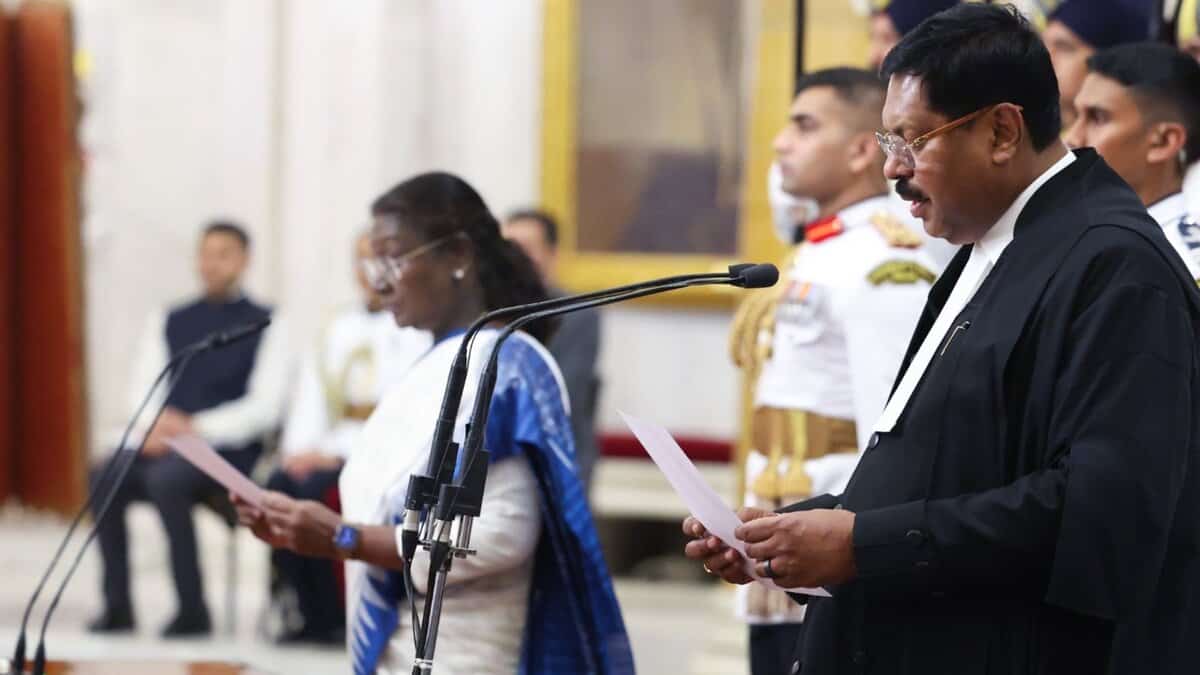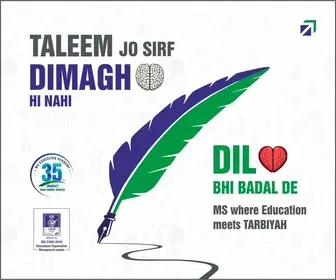
New Delhi: Justice Bhushan Ramkrishna Gavai, who has been part of several benches that delivered landmark rulings, including the one upholding the Centre’s decision to abrogate provisions of Article 370 bestowing special status to Jammu and Kashmir, was on Wednesday, May 14, sworn in as the 52nd Chief Justice of India.
The 64-year-old was administered oath by President Droupadi Murmu at a brief ceremony at the Ganatantra Mandap in the Rashtrapati Bhavan.
He succeeds Justice Sanjiv Khanna, who demitted office on Tuesday on attaining the age of 65.
CJI Gavai, who was elevated as a judge of the Supreme Court on May 24, 2019, will have a tenure of over six months and will demit office on November 23.
He took the oath of affirmation in Hindi.
Soon after he took oath, CJI Gavai sought blessings of his mother Kamal Tai Gavai by touching her feet. He was greeted by Vice President Jagdeep Dhankhar, Prime Minister Narendra Modi, Union ministers and former judges.
He is the second Dalit person and the first Buddhist to hold the esteemed position of Chief Justice of India. The first Dalit CJI was KG Balakrishnan, who served from 2007 to 2010.
About CJI Gavai
Born on November 24, 1960, in Amravati, Justice Gavai was elevated as an additional judge of the Bombay High Court on November 14, 2003. He became a permanent judge of the High Court on November 12, 2005.
He had joined the bar on March 16, 1985, and was the standing counsel for the Municipal Corporation of Nagpur, Amravati Municipal Corporation and Amravati University.
Justice Gavai was appointed an assistant government pleader and additional public prosecutor in the Bombay High Court’s Nagpur bench from August 1992 to July 1993.
He was appointed a government pleader and public prosecutor for the Nagpur bench on January 17, 2000.
Important verdicts by CJI Gavai
Justice Gavai has been a part of several Constitution benches in the apex court, which delivered path-breaking verdicts.
He was part of a five-judge Constitution bench which in December 2023 unanimously upheld the Centre’s decision to abrogate provisions of Article 370, bestowing special status to the erstwhile state of Jammu and Kashmir.
Another five-judge Constitution bench, of which Justice Gavai was a part, declared the electoral bonds scheme unconstitutional and cancelled for political funding.
He was part of a five-judge Constitution bench which, by a 4:1 majority verdict, gave its stamp of approval to the Centre’s 2016 decision to demonetise Rs 1,000 and Rs 500 denomination currency notes.
Justice Gavai was also part of a seven-judge Constitution bench, which by a 6:1 majority held that states are constitutionally empowered to make sub-classifications within the Scheduled Castes, which form a socially heterogeneous class, for granting reservation for the uplift of castes that are socially and educationally more backwards among them.
A seven-judge Constitution bench, also having Justice Gavai ruled that the arbitration clause in an unstamped or insufficiently stamped agreement between parties was enforceable as such a defect was curable and did not render the contract invalid.
In an important verdict, a bench headed by Justice Gavai laid down pan-India guidelines and said no property should be demolished without a prior show-cause notice, and the affected must be given 15 days to respond.
He is also heading the bench which is hearing matters related to forests, wildlife and protection of trees.



